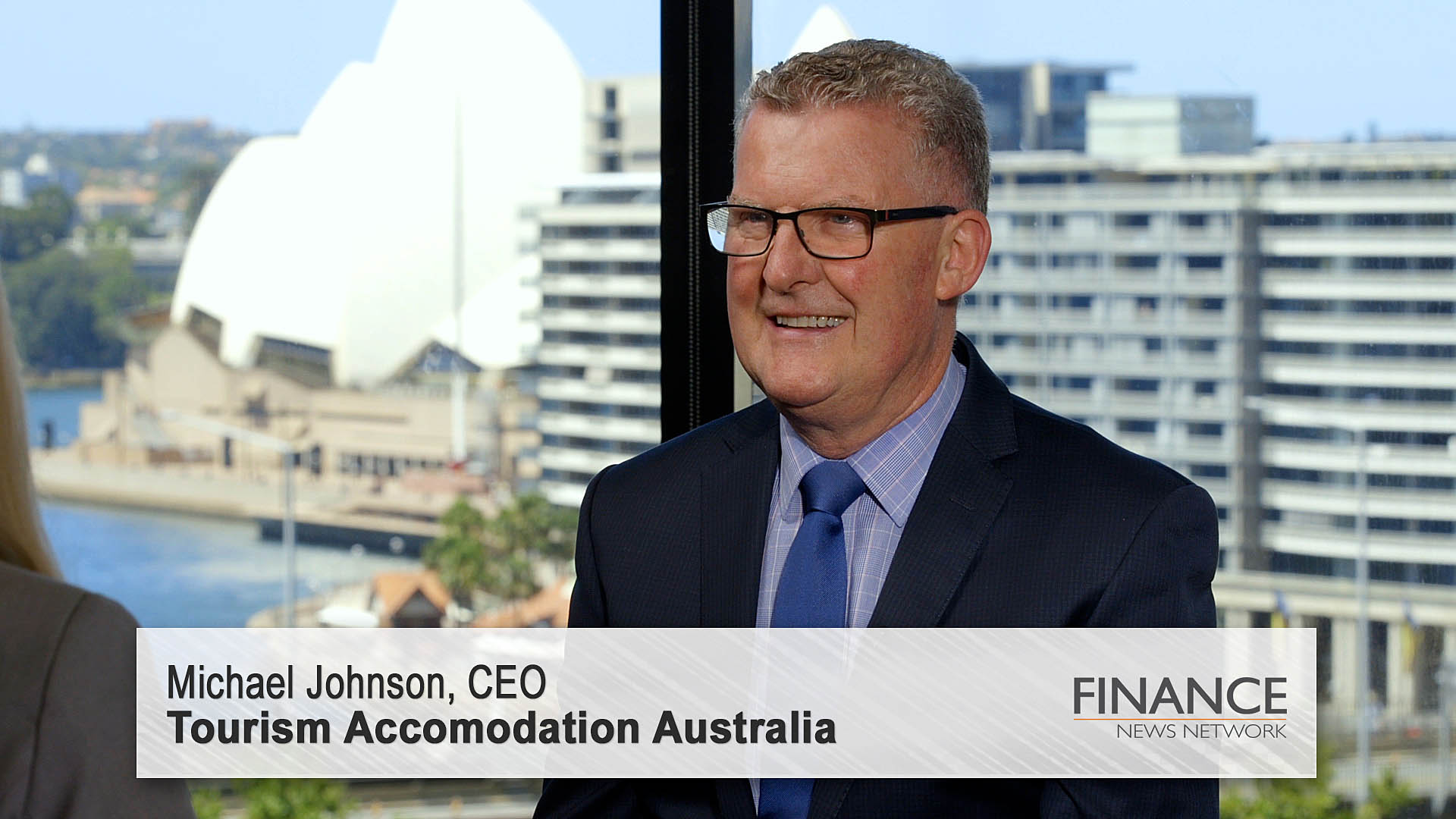COVID-19 and Australian hotels
Tourism Accommodation Australia CEO Michael Johnson discusses the impact of COVID-19 on hotels across Australia.
Rachael Jones: Hello. I'm Rachael Jones for the Finance News Network. Joining me today from Tourism Accommodation Australia is CEO Michael Johnson. Michael, welcome to the network.
Michael Johnson: Thanks Rachael.
Rachael Jones: Now, firstly, Michael, could you talk me through the impact the coronavirus pandemic has had on the tourism industry?
Michael Johnson: Well, extensively, right across Australia, it really has decimated the industry, particularly over the earlier parts of 2020, when it first kicked off and we went into lockdown, and of course the tourism sector was the hardest hit because it was in total lockdown and with hotels closed, except for those that were doing some of the quarantine work back in early April. But otherwise most hotels were closed and there was very little occupancy, very little travel, until we saw it open up again, back in sort of the middle of the year.
Rachael Jones: And so how has the Christmas period been for tourism operators?
Michael Johnson: Interestingly, last year, we recall the terrible situation with the bushfires that carried through from November, December through into January and February. Whereas this year, of course, we've come into this period with COVID-19, but of course the regions have done extremely well with people not being able to travel overseas. So, the regions have done very, very well, and we've had some really record-breaking occupancies in the regions. But I suppose there's always a downside to that upside, and that is that the CBD hotels, right round the country, have really suffered over this Christmas time.
Rachael Jones: And how are hotels and holiday accommodations bracing themselves for prolonged travel restrictions?
Michael Johnson: A lot of hotels have actually had to take a hard look and forecast what they believe these first two quarters, three quarters of 2021, are going to look like. It's fairly much well-publicised that we won't have any international travel for the first couple of quarters, and so I think, based on that, most of the hotels, particularly in the CBDs, have had to have a serious look. Look, the government's JobKeeper has been fantastic. It's been a great lifeline for a lot of hotels. But it is scheduled to come to an end in March, and, as an industry organisation, we'll be asking governments for further assistance, particularly for those CBD hotels that are currently operating in sub 20 per cent, a lot of them.
Rachael Jones: And what flexibility, Michael, have tourism accommodation operators been offering to travellers during these uncertain times?
Michael Johnson: There's been fairly widespread support given to travellers, understanding that these government closures of borders and restrictions have really made it difficult. And so a lot of operators have actually tried to say, "Well, let's postpone your bookings and move them to forward dates." Or as a last measure, refund. And a lot of people have been pretty receptive and said, "No, no. We still want to take a break. We still want to stay with you. So, we're happy to have those bookings move forward to a later date.”
Airlines have also been extremely receptive to that as well, with banking credits for airlines, and I think some of the hardest hit as well is some of those adventure operators or those in areas such as Cairns, where, you know, when the people haven't come, you can't replace that revenue, and that goes the same for hospitality and hotels. When you miss the revenue, you miss the revenue.
And the concern is, of course, in some of those peak periods, if you've missed the revenue, then you don't have those funds in the bank to get you through the quieter times.
Rachael Jones: So, Michael, what impacts could fresh outbreaks have over the next 12 months on hotels and holiday accommodations?
Michael Johnson: Well, we've seen recently, when there has been an outbreak, that there tends to be state borders close, and that then restricts travel movement, and when it restricts, then there's uncertainty in the market. And when there's uncertainty, then people are probably going to be a little reluctant to book. So, we are concerned that certainly the recommended hotspot management of these outbreaks is taken into account, and that we can actually control it, so that we don't see borders closed and that people still have some confidence to travel and travel safely.
And so, from that perspective, we're looking at the different protocols as well around the quarantine program, to try and take that risk out in the marketplace, so that people feel comfortable to travel.
Rachael Jones: Excellent. Thanks, Michael. Now, is there anything else you'd like to add?
Michael Johnson: You know, this is definitely the most difficult year that our industry has ever faced, and I've been often told, and I might be showing my age, but when you've been in the industry for many years, you've seen pilots dispute, you've seen September 11, you've seen the Asia crisis, the GFC. I think if you put them all together, we're probably dealing with COVID-19, because it has effectively stopped every market. And whilst we're in this slow recovery stage, it's leisure that's starting to come back, and that is of course the pent up demand of our residents in CBDs and regions that want to have a break. And so they're having that break… You know, having a holiday at home.
I think it's been a very difficult year. I think 2021 is going to be difficult going forward. We need to see borders staying open, and that's certainly the work that we're trying to work with governments to keep these borders open so that we can see travel move, until we're ready to take back in international travellers.
Rachael Jones: Michael Johnson, thanks so much for the update today.
Michael Johnson: Thank you very much, Rachael.
Ends
Copyright 2021 – Finance News Network
Source: Finance News Network










